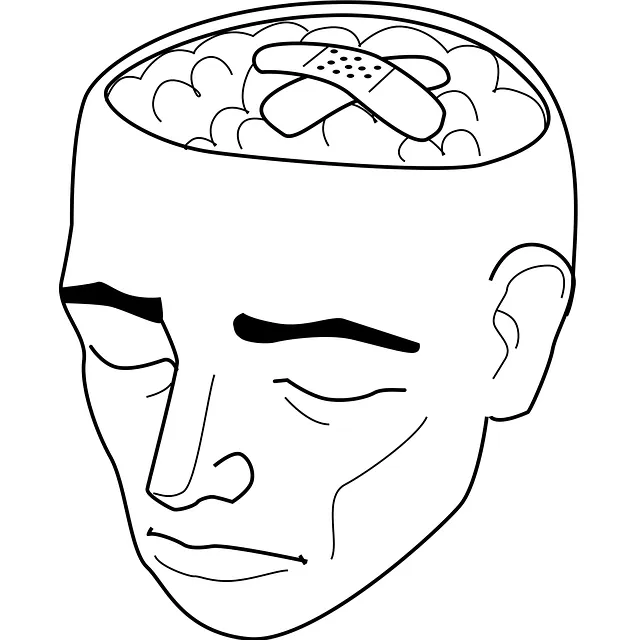Emotional Intelligence (EI) is a critical asset for healthcare professionals, especially in demanding fields like mental health services. Kaiser's inpatient mental health services in Golden prioritize EI development through comprehensive training, trauma support, and cultural competency programs. They teach patients and staff to recognize and manage emotions effectively, fostering trust, preventing burnout, and improving patient outcomes. This holistic approach integrates evidence-based interventions with skill-building, enhancing self-awareness, empathy, and communication for better emotional landscape navigation.
Emotional intelligence (EI) is a powerful tool for personal growth, enabling individuals to navigate life’s challenges and relationships with grace. This article explores various aspects of building EI, drawing insights from unique perspectives. We delve into the Kaiser Approach, an innovative strategy combining inpatient mental health services with EI development. By understanding emotions, enhancing social awareness, and cultivating self-awareness, one can transform their emotional landscape. Discover how these principles, especially relevant in today’s complex world, contribute to a more fulfilling life.
- Understanding Emotional Intelligence: A Key to Personal Growth
- The Kaiser Approach: Inpatient Mental Health and EI Development
- Recognizing and Managing Emotions: A Cornerstone of Emotional Intelligence
- Enhancing Social Awareness: Navigating Relationships with Empathy
- Cultivating Self-Awareness: The Foundation for Effective Communication
Understanding Emotional Intelligence: A Key to Personal Growth

Emotional intelligence (EI) is a powerful tool for personal growth and development, especially in demanding professions like healthcare. Recognizing and understanding one’s own emotions and those of others is the foundation of EI, and it plays a pivotal role in various aspects of professional life. For instance, mental health professionals like those at Kaiser, offering inpatient care, can greatly benefit from high EI levels. It enables them to connect with patients on a deeper level, fostering trust and understanding, which is essential for effective treatment.
By cultivating emotional intelligence, healthcare providers can prevent burnout, a common challenge in the industry. Techniques such as conflict resolution training and risk management planning for mental health professionals are valuable tools that enhance EI. These strategies not only improve patient outcomes but also create a healthier work environment, ensuring professionals can navigate the emotional demands of their roles with greater resilience.
The Kaiser Approach: Inpatient Mental Health and EI Development

The Kaiser Approach to emotional intelligence (EI) building emphasizes a holistic development strategy, particularly through its comprehensive inpatient mental health services. Kaiser, known for its extensive healthcare network and innovative practices, offers an environment conducive to EI growth, especially in addressing trauma-informed care. This approach leverages the power of structured programs and dedicated support services to enhance self-awareness, empathy, and effective communication skills among individuals seeking mental health treatment.
By integrating Trauma Support Services within its inpatient facilities, Kaiser enables patients to develop resilience and build confidence through evidence-based therapeutic interventions. Additionally, Healthcare Provider Cultural Competency Training plays a pivotal role in fostering an inclusive environment, ensuring that staff members can connect with diverse patient populations on a deeper level. This multi-faceted approach not only does Kaiser have inpatient mental health cover but also empowers individuals to navigate their emotional landscapes with greater proficiency and self-assurance.
Recognizing and Managing Emotions: A Cornerstone of Emotional Intelligence

Emotional intelligence (EI) is built upon a strong foundation of recognizing and managing one’s own emotions, as well as understanding and empathizing with others’ feelings. This cornerstone is crucial for effective communication and fostering healthy relationships. At Kaiser, their inpatient mental health services play a vital role in teaching individuals how to navigate their emotional landscape. Through specialized therapy sessions, patients learn to identify their emotions, understand their triggers, and develop strategies to manage them constructively.
This process involves cultivating self-awareness—a key component of EI—which enables people to recognize when they’re experiencing strong emotions. Once identified, these emotions can be evaluated for accuracy and intensity. By managing their own feelings, individuals gain better control over their actions and responses in various situations, ultimately improving their mental wellness. The Kaiser Mental Wellness Podcast Series and Community Outreach Program Implementation are excellent resources that promote positive thinking and provide tools to enhance emotional intelligence.
Enhancing Social Awareness: Navigating Relationships with Empathy

Emotional intelligence (EI) involves a deep understanding of oneself and others, which is cultivated through various practices. Enhancing social awareness is a pivotal aspect of EI, especially in navigating complex relationships with empathy. At Kaiser, their inpatient mental health services emphasize this by providing a safe space for individuals to explore and process their emotions while fostering connections with peers and caregivers.
This process involves active listening, recognizing emotional cues in others, and responding thoughtfully. By integrating these skills into daily interactions, whether at work or in personal life, one can prevent depression and build inner strength. A structured self-care routine development for better mental health is a key strategy to achieve this, ensuring individuals have the tools to navigate relationships with empathy and understanding.
Cultivating Self-Awareness: The Foundation for Effective Communication

Cultivating self-awareness is a cornerstone of emotional intelligence and can significantly impact one’s ability to communicate effectively. At Kaiser, their inpatient mental health services offer valuable resources for individuals seeking to enhance this aspect of their emotional well-being. By fostering self-awareness, individuals gain deeper insights into their thoughts, emotions, and behaviors, enabling them to understand their triggers and responses in various situations. This process involves introspection and reflection, where one becomes attuned to their feelings, motivations, and the impact they have on others.
When an individual is more self-aware, they can engage in conversations with authenticity and empathy. It allows for better crisis intervention guidance, as individuals are more attuned to their own emotional states and those of others. Moreover, improved self-awareness contributes to enhanced self-esteem improvement, leading to more confident and meaningful interactions. The Golden rule of effective communication—knowing thyself—is the first step towards building a robust Emotional Intelligence, especially in managing and resolving conflicts in personal and professional settings.
Emotional intelligence, a multifaceted skill set, holds immense potential for personal and professional growth. As evidenced by the Kaiser Approach, integrating emotional intelligence into inpatient mental health care can significantly enhance patients’ well-being. By recognizing and managing emotions, cultivating self-awareness, and boosting social awareness, individuals can navigate relationships with greater empathy and communicate more effectively. The Golden rule remains: understanding and developing emotional intelligence is a lifelong journey, but its benefits are invaluable in enriching our personal and collective lives.






